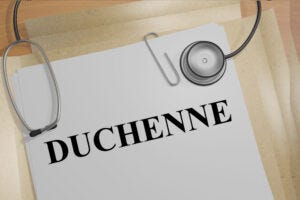
Catalent will supply commercial doses to Sarepta Therapeutics if its Duchenne muscular dystrophy (DMD) gene therapy delandistrogene moxeparvovec (SRP-9001) wins approval.
In November, the US Food and Drug Administration (FDA) accepted the submission from Sarepta for its potential DMD gene therapy SRP-9001. The Agency has given an action date of May 29, 2023, and thus the firm has expanded its partnership with contract development and manufacturing organization (CDMO) to prepare for the potential of commercial production.
“Sarepta is working as quickly as possible to advance new genetic medicines to treat progressive neuromuscular diseases like Duchenne and LGMD [Limb girdle muscular dystrophies]. We are excited to strengthen and expand our relationship with Catalent to meet anticipated demand for SRP-9001 and develop commercially scalable processes for additional gene therapy programs in our pipeline,” said Doug Ingram, Sarepta’s CEO.

Image: DepositPhotos/
Premium_shots
“We appreciate the years of dedication and collaboration that Catalent has provided in supporting our clinical trials for SRP-9001, and we look forward to continuing our work together through this expanded partnership.”
For its gene therapy pipeline, Sarepta had been using Paragon Bioservices for viral vector supply, entering into a specific long-term manufacturing agreement for SRP-9001 in October 2018. The following year, Catalent acquired Paragon for $1.2 billion and quickly expanded the agreement to add a second dedicated production line for Sarepta at its site in Harmans, Anne Arundel County, Maryland.
Since the addition of Paragon, Catalent has invested heavily in its gene therapy network including a $130 million expansion at the Harmans site in 2020, with another $230 million commitment announced in 2021.
A Catalent spokesperson was unable to comment on where commercial activities for SRP-9001 would take place, nor on any financial details regarding the contract expansion.
Catalent is not the sole CDMO contracted by Sarepta to support SRP-9001 and its gene therapy candidates. In 2018, the firm inked a deal with Brammer Bio – now Thermo Fisher – for a dedicated clinical and commercial freestanding single-use facility in Lexington, Massachusetts. Yposkesi, (now part of SK) meanwhile, is also on Sarpeta’s books.
However, “Catalent is currently the only CDMO with a facility approved by the FDA for commercial manufacturing of an AAV gene therapy,” the spokesperson told us.
“So, from that perspective, we are well-positioned to support a late-stage gene therapy program that could potentially gain commercial approval and, as a result, will ultimately need to supply commercial material.”
About the Author
You May Also Like

schedl_b_and_w.jpg?width=100&auto=webp&quality=80&disable=upscale)
schedl_b_and_w.jpg?width=400&auto=webp&quality=80&disable=upscale)



